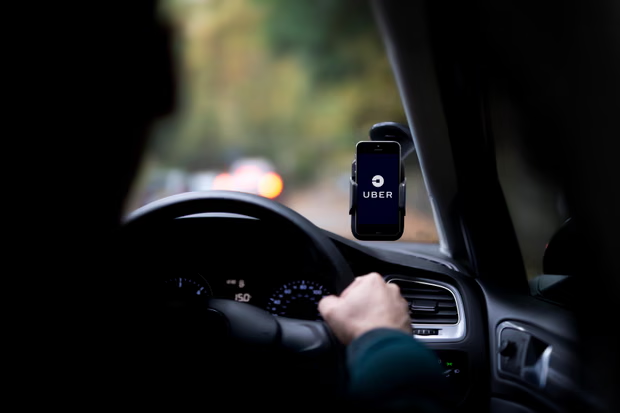California has taken a major step in expanding labor rights for gig workers. Governor Gavin Newsom signed a measure on Friday that will allow more than 800,000 rideshare drivers across the state to join unions and bargain collectively for higher pay, better working conditions, and key benefits.
Supporters say this is the largest expansion of private-sector collective bargaining rights in California’s history. It represents a compromise between labor unions and the tech companies that operate ride-hailing platforms.
California is now the second state in the U.S. to grant such rights. Massachusetts voters approved a referendum in November allowing drivers for companies such as Uber and Lyft to unionize. In Illinois and Minnesota, workers are pushing for similar rights, and advocates believe California’s new law will inspire them.
Governor Newsom framed the measure as a counter to ongoing cuts to federal worker protections. He said the state aims to show that government can deliver real solutions by protecting workers while also lowering costs for families.
The measure is the result of a September agreement among Newsom, state lawmakers, the Service Employees International Union, and ride-hailing companies including Uber and Lyft. In exchange for union rights, the state also passed another law favored by the companies. That measure lowers the insurance coverage requirements for accidents caused by uninsured or underinsured drivers.
Lyft CEO David Risher said the change could save his company $200 million and help reduce fares for passengers. Uber has also argued that high insurance costs in California are the reason fares in the state are more expensive than in other parts of the country. The companies say nearly one-third of every ride fare currently goes toward insurance.
The unionization law comes after years of legal battles. In 2019, state lawmakers passed a law requiring ride-hailing firms to treat drivers as employees with benefits. Uber and Lyft opposed the law and funded a ballot initiative, Proposition 22, which reversed it in 2020. That campaign cost the companies more than $200 million. Drivers and unions strongly opposed Prop 22, saying it stripped workers of protections while allowing the companies to increase their profits.
Last year, the California Supreme Court ruled that Uber and Lyft could continue treating drivers as independent contractors rather than employees. That meant drivers had no access to benefits like overtime pay, paid sick leave, or unemployment insurance. The new law does not change their contractor status, but it does give them the ability to join unions and negotiate on key issues such as pay rates, driver deactivations, and paid leave.
The law does not extend to food delivery workers for apps such as DoorDash, which remain outside the unionization framework. Still, advocates say the new rights for rideshare drivers are a major step forward.
Labor leaders celebrated the measure. Tia Orr, executive director of SEIU California, said it proves that valuing workers benefits everyone. She described the law as a sharp contrast to efforts at the national level to weaken worker protections.
Uber and Lyft also view the compromise as beneficial. Ramona Prieto, head of public policy for Uber in California, said the two measures show that industry, unions, and lawmakers can work together to find balanced solutions.
Still, some drivers’ groups argue the new law does not go far enough. Rideshare Drivers United, an advocacy group representing 20,000 drivers in Los Angeles, said the law lacks strong enforcement and does not require companies to share data on driver pay. The group noted that driver wages in New York City rose after the city required ride-hailing companies to disclose average pay. They argue California should adopt similar rules to ensure fair contracts.
Nicole Moore, president of Rideshare Drivers United, said drivers need state backing to make sure wage proposals are fair and that pay improves steadily over time.
The law arrives as Uber and Lyft continue to negotiate settlements with California and several cities, including San Francisco, Los Angeles, and San Diego. These lawsuits accuse the companies of withholding wages from drivers before Proposition 22 was enacted.
The passage of the new law highlights California’s role as a testing ground for the future of gig work. By granting union rights while still treating drivers as independent contractors, the state is exploring a middle path between worker protections and the flexibility that companies say is central to their business model.
Whether this model spreads to other states could depend on how well it works in California. For now, drivers have gained a new tool to push for better conditions, while companies hope lower insurance costs will reduce fares and keep passengers coming back.







